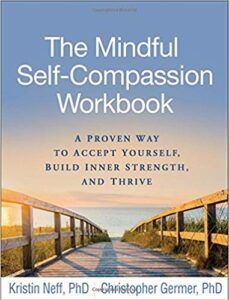Welcome back to the Healing Pain Podcast with Dr. Kristin Neff, PhD
Self-compassion is a tool that you can use to improve your well-being, your self-confidence, and your resilience. It’s one that we need to pay a lot more attention to in the world of pain care. What’s interesting about self-compassion is that oftentimes it’s easy for us to be compassionate towards others, but applying the same kindness to ourselves can be a real challenge. Moral development specialist and co-author of the book called The Mindful Self-Compassion Workbook, Dr. Kristin Neff, conducts research on self-compassion, a central construct in Buddhist psychology and one that had yet to be examined empirically. In addition to her pioneering research into self-compassion, she has developed an eight-week program to teach self-compassion skills. Dr. Neff discusses why self-compassion in pain care is important, not only for those living with chronic pain, but also for the practitioners who treat pain every day in the clinic.
—
On this episode, we are talking about self-compassion and it’s a topic and a tool that you can use to improve your well-being, self-confidence and resilience. It’s one that I believe we need to pay attention to a lot more in the world of pain care. What’s interesting about self-compassion is that oftentimes it’s easy for us to be compassionate towards others, but applying the same kindness to ourselves can be a real challenge.
Joining us on this episode to talk about self-compassion is Dr. Kristin Neff. She studied Communications as an undergraduate and completed her graduate work at the University of California at Berkeley studying moral development. Her dissertation research was conducted in India where she examined children’s moral reasoning. She then went on to spend two years of postdoctoral study at Denver University looking at authenticity and self-concept development. She is currently an Associate Professor at the University of Texas at Austin. In her last year of graduate school, she became interested in Buddhism and has been practicing meditation and the Insight Meditation tradition ever since. While doing her postdoctoral work, she decided to conduct research on self-compassion, a central construct in Buddhist psychology, and one that had yet to be examined empirically. In addition to her pioneering research into self-compassion, she has developed an eight-week program to teach self-compassion skills. The program is co-created with her colleague, Chris Germer, and affiliated with Harvard Medical School and is called Mindful Self-Compassion.
Dr. Neff is also the author of a book called Self-Compassion, which is published in 2011 by William Morrow. We will discuss why self-compassion is important, not only for those living with chronic pain but also for the practitioners who treat pain every day in the clinic. If you are new to the show, I want to welcome you. Make sure that you sign up for our mailing list. You can join our tribe of healers looking to heal chronic pain naturally with non-pharmacologic treatments. You can sign up so I can send you a new podcast each and every week directly to your inbox. If you are a practitioner, make sure you hop on over to the IntegrativePainScienceInstitute.com and check out some of the cool courses and things we’ve got going on there. Without further ado, let’s begin with Dr. Kristin Neff.
Subscribe: iTunes | Android | RSS
The Art Of Self-Compassion In Pain Care with Dr. Kristin Neff, PhD
Welcome to the show, Dr. Kristin Neff. It’s great to have you here.
It’s great to be here.
I’ve been a big fan of your work for quite a while and weaving mindfulness work into those with chronic pain is important. The concept of compassion and especially self-compassion, people just have to start to open the door and peek into when it comes to living with chronic pain or chronic illness. I think the best way to lead into this is just to give us your definition of what self-compassion is and why it’s important.
I think especially for people with chronic pain, self-compassion is absolutely key. There is a lot of overlap between mindfulness and self-compassion. In fact, the first step to self-compassion is to be mindful that you’re in pain, either emotional pain or physical pain. It’s the ability to relate to that pain with an accepting stance instead of fighting it and resisting it, “I wish I wasn’t feeling this pain,” which sadly we know just makes things worse and accepting, “This is the reality. I’m feeling pain and giving it space,” is key. We don’t want to just stop there. We want the heart to be involved as well, not just our awareness. What self-compassion does is it adds two components to mindfulness. First are warmth and kindness. In other words, you could acknowledge you’re in pain and you don’t want to fight it but at the same time, it’s like, “It hurts. I’m so sorry I’m in pain.”

That tenderness and that care, like if you have a friend or a child who’s in pain, you just naturally say, “I’m so sorry.” There’s a warmth and tenderness and concern that goes toward the person in pain. We can actually do that with ourselves. It also helps us hold the pain. We’re able to have that warmth and tenderness towards ourselves. Kindness, if you don’t want to be non-scientific about it, it really is love. Then there’s another element that’s crucial and that’s remembering humanity, connectedness. If you look at the root of the word compassion, it means to suffer with. Passion means to suffer, com means with. Inherent to the state of compassion is some sense of, “This is the human condition. We’re all imperfect. We all lead imperfect lives.”
This is very different than pity. Pity is like, “Poor you, poor me.” It’s like, “Somehow it’s only me who’s suffering.” Compassion reminds us that this is life, this is human. It doesn’t mean we care any less about our suffering. We don’t get lost in our personal suffering, but here’s what happens. Often when people are experiencing emotional or physical pain, there’s this weird irrational reaction of something has gone wrong. “This shouldn’t be happening. What should be happening is I am perfect and my life is perfect,” and when that’s not the case, something has gone wrong. It’s illogical as if everyone else in the entire world is leading a perfectly normal problem-free life and just me who’s having this issue. That irrational reaction we tend to have is damaging because not only are we suffering, we feel all alone and disconnected from our suffering.
We remember that everyone has their own flavor of suffering. I have an autistic child, maybe you’ve got back pain, and maybe this other person has a trauma history. Everyone has some flavor of pain but the amount is different and the way it manifests is different. The human experience is about challenges. That’s what it means to be human. There is no person alive that hasn’t some pain or difficulty. When we remember that truth, what happens is instead of feeling all alone and isolated in our struggles, we feel more connected to other people. That sense of connectedness also gives us a sense of strength and coping and feeling we can handle this because this is a human condition. Those three components are mindfulness of our pain, kind response, warm response to that pain, and that feeling of connectedness. Remembering that this is part of life for everyone.
Mindfulness, kindness and a kind response. It’s a great on-ramp to our conversation. As you’re talking and as I was preparing for this podcast, I was getting these flashbacks of past patients that I’ve had that were able to step into a sense of self-compassion easily. Then those that look at like, “This is not for me because in my life, I have to fight. I’m a fighter. I have to overcome pain.” Personally, I don’t like the word overcoming pain because it does just that. It puts people in this fight or flight response. Talk about some of those objections with someone who feels like they have to fight and it’s not in line with self-compassion.
If you want to know physiologically why people aren’t more self-compassionate and why it’s easier to be compassionate to others than ourselves, it’s because whenever we feel threatened, our primary response is the fight or flight response. Our nervous system, the sympathetic nervous reaction, we go into, “There’s a problem, I need to get ready for fight or flight.” We pump up adrenaline and cortisol and we want to control things so that we’re safe. It’s perfectly natural. For instance, when you’re in pain, I’m not threatened by your pain, so I’m more able to be my naturally warm, compassionate self. When I’m in pain or something is difficult in my life, I immediately want to control the situation and fight it.
The only problem is what we know psychologically, is the more we fight pain and resist it and say, “This shouldn’t be happening, I need to control and I’m really pissed off that I can’t control it.” It increases the pain both physically and emotionally. It just makes things worse. If fighting the pain worked, I would say go for it. More power to you. That type of resistance doesn’t work. That doesn’t mean you can’t take lots of active steps to try to deal with the pain. Absolutely, but emotionally fighting it like, “This can’t be happening, I’m going to control the situation,” good luck. That’s not what life is about. What you do is you learn to help move your sense of safety from fighting the problem which is natural to the care system.
That’s another way we feel safe. For instance, even lizards have the fight or flight response. They’ll stay away from a danger and they’ll run or they’ll fight if they have to. All animals have that. What’s special about mammals is another way we feel safe is through this soothing affiliation system. When your parents or a family member cuddles up next to you or hold you close or soothes you or comforts you, that’s another way that we can feel safe. That’s our parasympathetic response. What you’re doing when you moved to compassion is you’re just using another way to help you feel safe.
It doesn’t mean that you aren’t still going to do everything you can to improve your situation. Instead of resisting what is, you’re just working with what is, comforting and being there, supporting yourself while you’re coping. That gives you the peace of mind and that sense of connectedness. That’s going to help you make better choices. It’s interesting most people don’t believe it. They don’t believe it until they try it, because they’re so used to coping with the fight or flight response and the fear response. It’s perfectly natural. This can help us feel safe so that we can take constructive action.

As people start to enter this work and you start to work with them and they explore your work and your website, your books, the first couple of weeks is going good, next couple of weeks I’m feeling better. Then they hit a speed bump where they say, “I think I’m being self-centered and I’m only focusing on myself and not others.”
Yes and no. The thing about being self-centered, that usually doesn’t happen after you start practicing self-compassion. That’s a fear for why people don’t practice self-compassion. They think that if they give themselves kindness, that’s going to make them more self-centered and that’s why they don’t do it. In fact, it’s exactly the opposite. All the research shows that being self-compassionate makes you less self-centered. When you feel connected and you feel another fellow human being in your experience, instead of poor me, you’re actually less self-centered. You have more resources to give to other people. That’s when it happens beforehand, but there is a roadblock people hit. Basically, what happens to self-compassion practice is there’s a saying we have, “We give ourselves compassion not to feel better but because we feel bad.”
What happens is first you’re just, “My heart’s breaking. This is difficult.” It’s this warm, “I’m so sorry.” You bring in tenderness and warmth and support and friendliness to one’s self and it sometimes does actually help you feel a little bit better. Then what happens is your intention changes and instead of just giving yourself compassion because it’s so hard and it’s so painful, you start doing it to try to make the pain go away. Our minds are very clever like, “I’ll put my hands on my heart.” This is a very common way to help yourself have compassion, you put your hands on your heart. You start doing it to make the pain go away. What happens is eventually that’s a more center form of resistance you’re using. Self-compassion is just one more manipulation technique to try to control your environment and it doesn’t work because control is impossible.
It’s another form of resistance. That’s what can happen and when that happens, people start thinking, “I’m not very good at this. It’s not working for me.” That can happen. Another thing that can happen is a process we call a backdraft. Backdraft is a firefighting term you may be familiar with it. Firefighters, when they go to a house on fire, they don’t just fling open the doors to get the fire out because if they do that, the air rushes in and the flames rush out. It can be a bit like that with self-compassion practice. Maybe our entire lives, we’ve closed the doors of our heart trying to protect yourselves, we needed to, and then we start opening the doors of our hearts, giving ourselves some warmth, giving ourselves some kindness and the love rushes in and the old pain rushes out. That’s called a backdraft.
It’s a very normal part of the process. It’s actually just temporary. You can work with it. It’s not a problem but if you don’t know about it, people think, “I’m really bad at this,” and then they give up. What makes self-compassion practice work is the way with your intention. You don’t do it to try to fix things. It’s not one more thing you’ve got to get right. It’s turning toward the reality of the pain of life, physical or emotional. Everyone has their flavor of pain. You just let your heart melt a little bit in the face of that pain, with friendliness, with goodwill and with helpful and supportive action. Then that little shift can make remarkable changes in your ability to cope with life. For instance, you work with patients with chronic pain.
There are studies that showed not only does it help people cope emotionally, but I think it actually helps physically as well, because often what we know is that when we resist pain, we have a lot of fear and it increases the level of physical perception of pain. What happens when you give yourself kindness, you help yourself feel safe. It’s like, “This is overwhelming but I got my back. I’ll be here. I won’t abandon myself in the midst of my pain. I’ll still love and care for myself as best I can.” Then it helps us feel safe and that connection reduces the perception of how much it hurts. We’re doing some studies now at Harvard on pain and we don’t know the results yet so I can’t share them with you, but we have people with chronic pain and we’re practicing self-compassion.
We’re doing a study where we give them an induced pain, the temporary one and see if they use it for self-compassion practice to work with it and how it actually changes their brain. We don’t have the results yet, but we’re going to get them soon. It’s interesting, but subjectively, people report that this kindness, this warmth, this support, the connectedness, it just helps to be able to cope with the pain and it doesn’t make it so overwhelming.
I love your metaphor of the backdraft. It talks to a lot of people who go through physical pain, emotional pain and all sorts of different types of chronic pain where it might come back basically.
You have to respect backdraft. If you try to practice self-compassion and you get overwhelmed with feelings of terror, then pull back a little bit. You don’t want to just practice being overwhelmed. We can go slowly. We can allow ourselves to be slow learners. People with trauma histories, for instance, they need to go more slowly because of all the backdraft. We respect it that your mind is saying, “I’m a little overwhelmed here, I’ve got to pull back.” You can pull back without giving up and you can find some other way to comfort yourself. Maybe saying kind things to myself is too much, I will just take a bath or something like that or put my cat, something that’s not emotionally activating. When you do that, you’re still practicing self-compassion, caring for yourself.
You have a couple of books. You have a book called the Mindful Self-Compassion Workbook. You have programs where practitioners can train. Everyone can find all of that at Self-Compassion.org. It’s a great website. Check it out. Can you tell us about the skeleton of your program for practitioners?

This is something that I’ve developed with my colleague, Chris Germer. We’ve been working on it for almost a decade now. If you go to my website, you can link to the Center for Mindful Self-Compassion and find the course in your area. Basically, it’s a program that we developed to help people learn the skills of self-compassion. We know from the research that it’s helpful, but how do people learn it? It’s an eight-week program with 37 meditations and practices in the program, concrete things you can do to practice self-compassion, to retrain your neuro pathways.
We do have some meditations, but the interesting thing about self-compassion practice is it doesn’t require meditation. Not everyone’s a meditator, let’s face it. There are a lot of informal practices like something we call the self-compassion break, which is just when you notice you’re struggling, first of all, you use the mindfulness to acknowledge, “This is difficult for me right now. I’m having trouble. This is hard.” That’s mindfulness. You go, “This is part of life. It’s not just me. Everyone struggles.” You can combat that false sense of isolation and then give yourself some sort of comforting gesture like hands on your face, maybe your heart or hold your own hand and just some physical sign of support. Then you say some words of kindness. You might think, “What would I say to a close friend who is experiencing this right now? Let me try saying it to myself.”
Very simple practices like that which maybe take one minute can make a radically powerful change in people’s lives. There are lots of little practices like that in the book and it’s sequenced so the skills build sequentially. I’m pretty proud of that program. My partner, Chris, he’s done a lot of the work on it. We’ve really worked hard and it’s pretty good if I say so myself. The first program we taught was terrible. We didn’t know what we were doing, half of the people left. That was ten years ago, but now it’s pretty seamless and partly it’s because we had teachers all over the world. We have thousands of teachers and they say, “This worked with my class.” It’s been refined and refined. It’s a community project at this point. I think that’s why it’s good because it’s been tested and what’s left in the program seems to really work.
You guys are doing great work and you’ve been working on it for a long time with stuff that’s needed in many areas. Talk to me about resiliency when it comes to self-compassion.
If you were to sum up the research literature, which is huge now, I think there are 1,600 studies on self-compassion at this point. One of the things you can say clearly from the research is self-compassion provides strength and resiliency. If you think about it, people who are going through some difficulty, emotional pain, physical pain, being supportive toward yourself, being kind and being caring gives you the strength you need to cope. Let me just give you an example of one study. We did a study of veterans who had actually come back from Iraq or Afghanistan, people who saw action and we measured their self-compassion level, the soldiers’ self-compassion level.
We followed them up for nine months to see who developed PTSD symptoms or not, post-traumatic stress syndrome. What we found is that level of self-compassion was a powerful predictor of whether or not they developed PTSD. Those that are kinder and more supportive of themselves, they were less likely to develop PTSD. In fact, we found that their level of self-compassion is a more important determinant whether or not they developed PTSD and how much action they’ve seen overseas. If you think about it, that’s pretty powerful.
I like the veterans example as a metaphor because if we think about it, when you go into battle, who do you want by your side? Do you want an ally saying, “I got your back, I care about you, I’m here for you,” or do you want an enemy that says, “You’re crap, you’re no good. It’s not good enough, try harder?” Who’s going to help you in that moment of battle, an inner ally or inner enemy? Clearly, an inner ally, a friend to ourselves that’s going to help us cope with life’s difficulties. I think that’s why the research is so powerful.
Speaking of research, if someone’s reading this and they have gone to your website, they maybe have tried different types of mindfulness approaches. Is there a way they can test their own self-compassion?
They can take the Neff Self-Compassion Scale. That was fifteen years ago when I first decided I wanted to research self-compassion. It hadn’t been looked at empirically. I developed a scale to measure it. You can take it on my website, it will score for you and give you data on how self-compassionate you are. You can track yourself over time to see what changes. I have a lot of practices on my website. I have meditations and written exercises, little practices you can do or you can buy the Mindful Self-Compassion Workshop and lead yourself through these practices and just see if there are any changes. It’s a contemplative practice, but it’s also hard science. There’s a lot of research behind what we do and why we do it.

How has teaching this work start to change either you or your own sense of self-compassion?
I feel I’ve got the best job in the world because I do like the hard science. I like doing research, writing manuscripts, crunching numbers, doing all that stuff but it’s just from the head. It’s intellectually interesting, but it’s more thought process. When I teach self-compassion, when I guide people through a practice to help them be kind to themselves, when I embody self-compassion and to teach self-compassion, you need to embody it. You dropped down from the head into the heart, you become embodied and it’s wonderful. I get emails from people talking about my work has really helped them and it’s just so amazingly gratifying to be able to do what I love so I’m pretty lucky.
Your book is out now. Everyone can find it at Self-Compassion.org and read about your work. Can you tell us about some of the plans you have coming up as far as lectures and workshops?
On my website, you can look at my workshop schedule. I am a professor at a university so I can’t travel that much, but I do probably once or maybe sometimes twice a month, I’m teaching workshops. I teach a lot of one-day workshops. I do teach the full Mindful Self-Compassion Course with my partner, Chris Germer, several times a year. It’s an eight-week course, but we squeeze it all in the five days and call it intensive. You can do that, you can also look at TED talks and other things I have on there. The nice thing about self-compassion is that you can learn it from anyone. We have thousands of teachers all over the world. You can go to CenterForMSC.org and see if there’s a course in your area. It’s definitely more and more available every day. I hope some people do because it’s such an easy and powerful gift you can give to yourself. There’s no reason not to be a friend to yourself. It’s just our cultural conditioning that tells us we shouldn’t.
It’s such an important work and I think self-compassion helps people open up to the fact that when they open up to pain instead of running away from it or avoiding it, it’s really the way to start to overcome it.
To open up the pain, we need to have our own back. One thing we think about self-compassion is we’re withholding pain with love. It’s not safe to open the pain if we’re just like, “I can feel this.” When we’re like a crying child tenderly in our arms, when we hold the pain with love and start to rest our awareness in the love that holds the pain, instead of being overwhelmed by the pain, that’s where we get our true strength.
It’s just a great work. Make sure you check out her book, the Mindfulness Self-Compassion Workbook, which is on her website. It’s available. Make sure you share this episode out with your friends and family on Facebook, Twitter, LinkedIn, wherever your favorite social media tool is. Please share it out. It’s important information for those living with chronic pain. Hop on to iTunes and give us a five-star review. I want to thank Kristin for joining us and stay tuned as we talk about more integrated ways to overcome pain and suffering. Thank you.
Important Links
- Dr. Kristin Neff
- Chris Germer
- Mindful Self-Compassion
- Self-Compassion
- IntegrativePainScienceInstitute.com
- Mindful Self-Compassion Workbook
- Self-Compassion.org
- Center for Mindful Self-Compassion
- Neff Self-Compassion Scale
- CenterForMSC.org
- Healing Pain Podcast on iTunes
About Dr. Kristin Neff, PhD
 Kristin studied communications as an undergraduate at the University of California at Los Angeles. She did her graduate work at University of California at Berkeley, studying moral development with Dr. Elliot Turiel. Her dissertation research was conducted in Mysore, India, where she examined children’s moral reasoning. She then spent two years of post-doctoral study with Dr. Susan Harter at Denver University, studying issues of authenticity and self-concept development. She is currently an Associate Professor at the University of Texas at Austin.
Kristin studied communications as an undergraduate at the University of California at Los Angeles. She did her graduate work at University of California at Berkeley, studying moral development with Dr. Elliot Turiel. Her dissertation research was conducted in Mysore, India, where she examined children’s moral reasoning. She then spent two years of post-doctoral study with Dr. Susan Harter at Denver University, studying issues of authenticity and self-concept development. She is currently an Associate Professor at the University of Texas at Austin.
During Kristin’s last year of graduate school she became interested in Buddhism, and has been practicing meditation in the Insight Meditation tradition ever since. While doing her post-doctoral work she decided to conduct research on self-compassion – a central construct in Buddhist psychology and one that had not yet been examined empirically.
In addition to her pioneering research into self-compassion, she has developed an 8-week program to teach self-compassion skills. The program, co-created with her colleague Chris Germer, affiliated with Harvard Medical School, is called Mindful Self-Compassion. Her book, Self-Compassion, was published by William Morrow in April, 2011.
The Healing Pain Podcast features expert interviews and serves as:
A community for both practitioners and seekers of health.
A free resource describing the least invasive, non-pharmacologic methods to heal pain.
A resource for safe alternatives to long-term opioid use and addiction.
A catalyst to broaden the conversation around pain emphasizing biopsychosocial treatments.
A platform to discuss pain treatment, research and advocacy.
If you would like to appear in an episode of The Healing Pain Podcast or know someone with an incredible story of overcoming pain contact Dr. Joe Tatta at [email protected]. Experts from the fields of medicine, physical therapy, chiropractic, nutrition, psychology, spirituality, personal development and more are welcome.
Love the show? Subscribe, rate, review, and share!
Join the Healing Pain Podcast Community today:
